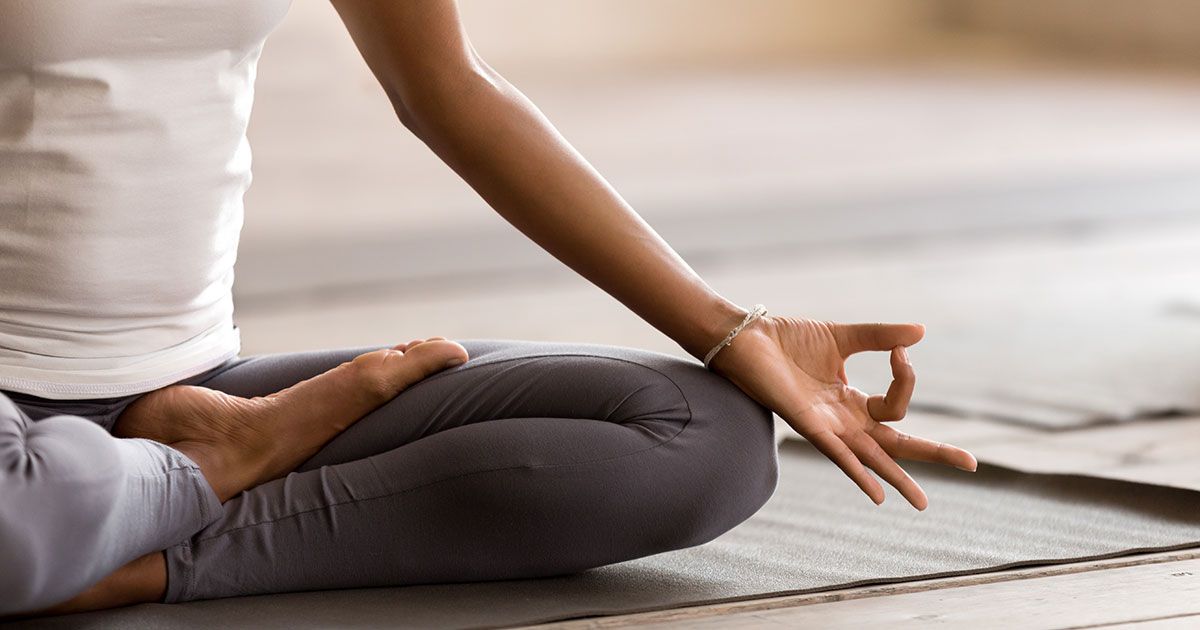Know yourself through self-observation. Vipassana, or insight meditation, is one of the oldest meditation techniques. It means "to see things as they really are." Buddhist monk Henepola Gunaratana in the book Vipassana Meditation. The art of living mindfully ”(Mindfulness in Plain English) in simple language talks about self-knowledge, refutes false ideas about meditation, and gives practical advice on techniques and attitude to the process. Here are the main thoughts of this book.
Expect nothing
Relax and watch what happens. Treat everything as an experiment, show interest in the process itself, and don't be distracted by your expectations from the result. If it comes to that, don't focus on the result at all. Let the process go at its own pace and in its own direction.
Let meditation teach you. The meditative consciousness seeks to see reality exactly as it really is. Whether or not it meets expectations is not important. You need to drop all prejudices for a while. Leave visual images, opinions, and notions. They should not accompany you during practice.
Read also: Meditation on Science: How Mantras and Deep Breathing Really Help
Don't strain
Meditation is not aggressive, so don't push yourself or make more effort than you can. In meditation, there is no place for violence against yourself. Let your actions be easy and measured.
Do not hurry
There is no rush in meditation; you do not need to rush. Sit on a pillow as if you can devote the whole day to it.
Anything of great value takes time. Calm, calm, calm.
Don't cling to anything, and don't reject anything.
Let what happens, come to terms with it. Pleasant images appear to you - good; bad images appear - also good. Please take it as an equivalent and feel comfortable in any situation. Do not fight your feelings, but watch them thoughtfully.
Learn to let go
Recognize the need to accept change. Let go and relax.
Accept everything that happens to you.
Accept your feelings, even those you would like to forget. Accept any life experience, even if you hate it. Don't judge yourself for flaws and mistakes. Learn to accept everything that happens to you as absolutely natural and understandable. Exercise an impartial acceptance of what is happening and respect everything you have experienced.
Be condescending to yourself.
You may not be perfect, but you are all you have to work with. To become who you want in the future, you must first accept yourself as you are now.
Study yourself
Doubt, do not take anything for granted. Don't believe in anything just because it sounds wise or because it was said to a saint. Be convinced of everything personally, rely on your own experience, but do not become arrogant and arrogant cynic. Run all the statements through you and let the results be your guide to truth.
Insight meditation is formed from an inner desire to become aware of reality and gain a deeper understanding of the truth of being. The practice is based on the desire to awaken and grasp the truth; it is superficial without it.

Treat problems like challenges.
See all negative things as opportunities for development and growth. Don't run from problems, don't blame yourself, and don't bury your burdens in silence.
Problem? Perfectly! You will benefit from this. Rejoice at it, dive into the problem and investigate.
Do not ponder
You don't need to understand everything. Discursive thinking will not help you in meditation. In the practice of meditation, the mind is naturally purified through mindfulness and wordless attention. The habit of thinking over everything is unnecessary to free yourself from the things that hold you in chains.
All that is needed is a clear perception of the nature of these things and how they work. This alone is enough to get rid of them. Reasoning only gets in the way. Don't think. Be aware.
Also read: 8 Different Types of Meditation and their Benefits.
Don't get hung up on differences.
All people are different, but dwelling on their differences is dangerous. With the wrong approach, this leads to selfishness. When looking at another person, the thought may flash: "He looks better than me." The immediate result is envy and shame. A girl, comparing herself to another, may think: "I am prettier than she." The immediate result is a sense of pride.
Such comparisons are mental habits that lead us on a straight path to greed, envy, pride, jealousy, or hatred.
This is our subjective attitude, and we do it all the time. We compare our appearance, successes, achievements, material condition, property, or IQ level with others, but all this leads only to alienation, barriers between people, and hostility.
It is the practitioner's job to eradicate this habit by carefully studying and replacing it with another. Instead of seeing the differences, pay attention to the similarities. Learn to focus on those things that are universal for life and bring you closer to others. And then the comparisons will make you feel a kinship, not alienation.
Adapted and translated by The Cop Cart Staff
Sources: Life hacker







